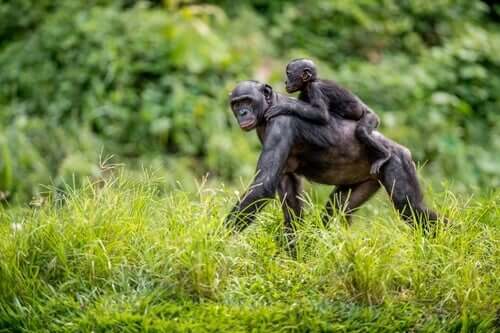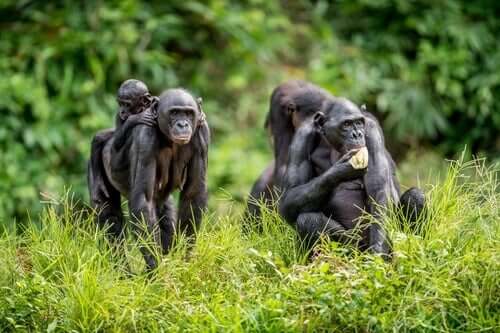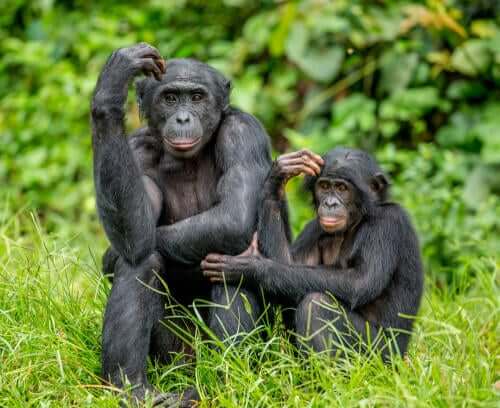Bonobo Mothers Help Their Offspring Find a Mate

The bonobo is the least known species when it comes to apes. However, in recent decades they’ve come to light due to their many exciting behaviors that, in many cases, remind us of our own kind. Bonobo mothers, in fact, work hard at ensuring the propagation of their genes. Sound familiar?
The bonobo is a peculiar creature and so is the common chimpanzee. We must keep in mind that chimpanzees are not the only primates related to us. The chimpanzee, in fact, is as close an ancestor to the bonobo as it is to humans. So, it’s clear we have a close relationship with both of these species.
Traditionally, the common chimpanzee was always mentioned as being closest to us. Today we know that human beings are also rather like bonobos.
For one, the bonobo is one of the matriarchal species within the animal kingdom. It’s also a species that solves problems within the group via sexual exchanges, and so aggression is pretty scarce.
Like other primates, maternal care of bonobo offspring lasts a long time and is very important to their proper development. However, now a group of researchers picked up on a rather peculiar behavior.
It seems the mothers of this species assist their offspring when it comes to flirting and finding a mate. This behavior was just revealed and it seems to be completely absent in other primates.
The mothers who help their offspring find a mate

What researchers observed in the Kokolopori reserve is the least striking, in fact. As stated in a study published in the Current Biology journal: when a male tries to copulate but is prevented by a second male, the mother of the first will chase the second one until they give up.
We already knew the hierarchy of the males is based on their mothers, but we didn’t know it happens in this manner. It seems dominant mothers can guarantee the reproduction of their sons and therefore the preservation of their own set of genes.
In fact, when males have a mother within their group, they’re up to three times more likely to reproduce. Not only that, but having a close relationship with their mothers seems to make it easier for them to be accepted by the rest of the females. Therefore, they can get near them and interact without too many obstacles.
The study, led by the primatologist Martin Surbeck, points out the enormous differences in this regard with the chimpanzee. There, closeness to one’s mother isn’t only detrimental to males, but it actually seems to impair their chances of reproduction.
Why do bonobo mothers help their young find a mate?

In addition, males are a lot more successful in disseminating their genes. A bonobo female can only give birth to one baby every three years. In contrast, a male can have as much offspring as he can plant, and that increases the success of the maternal lineage.
This is not the first time wild animals are caught supporting their children’s successful reproduction once these reach maturity. For example, orca mothers assist theirs during hunting, even when they’re already independent. This process happens during their menopause, a process that doesn’t happen to bonobo females.
